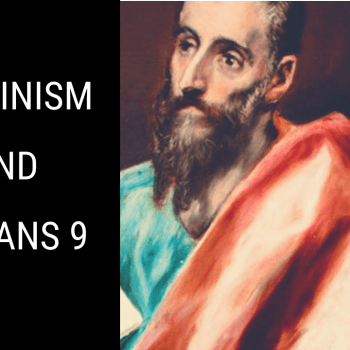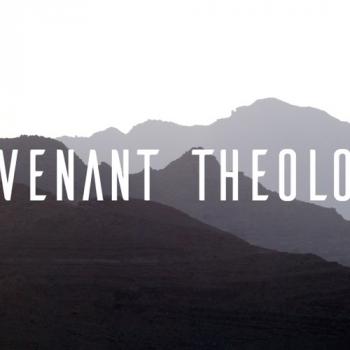If you have done any study of covenant theology, you are probably aware that the Hebrew term berith and the Greek term διαθηκη are translated as “covenant.” In Reformed theology, covenant is the primary hermeneutical grid whereby all of Scripture is understood. Thus, the relationship between Adam and God is a covenant (though never stated with the possible exception of Hosea 6:7), the relationships with Noah, Abraham, Moses, and David are covenantal, as well as the New Covenant. It is even argued that the persons of the Holy Trinity have an eternal covenant among themselves (the covenant of redemption).
As a Lutheran, I have often been asked how we understand the concept of covenant. Is it an overriding theme of Scripture? It of course can’t be denied that it is a concept used in Scripture. Yes, God makes covenants. I think that Meredith Kline’s work in demonstrating to continuity between ancient Suzerainty/vassal treaties and the structure of the Mosaic covenant is helpful. But this leads me to an important question. Is covenant the overriding concept of Scripture, or is it God’s way of interacting with people in a culture that had a prominent emphasis on covenants? Is God accommodating himself so as to interact within the current cultural milieu? I think the latter may be the case.
Look for example at how the New Testament speaks of covenant, using the term διαθηκη. There isn’t a lot of talk about the New Covenant, at least not in those terms. Yes, we are people of the New Covenant in fulfillment of the prophecy of Jeremiah 31. Yet, the concept of covenant is not used within the same suzerainty/vassal context that it is in the Old Testament. Look at how the concept is used in Hebrews 9,
“Therefore he is the mediator of a new covenant, so that those who are called may receive the promised eternal inheritance, since a death has occurred that redeems them from the transgressions committed under the first covenant. For where a will is involved, the death of the one who made it must be established. For a will takes effect only at death, since it is not in force as long as the one who made it is alive. Therefore not even the first covenant was inaugurated without blood. For when every commandment of the law had been declared by Moses to all the people, he took the blood of calves and goats, with water and scarlet wool and hyssop, and sprinkled both the book itself and all the people, saying, “This is the blood of the covenant that God commanded for you.” And in the same way he sprinkled with the blood both the tent and all the vessels used in worship. Indeed, under the law almost everything is purified with blood, and without the shedding of blood there is no forgiveness of sins.” (Hebrews 9:15-22)
The theme of this text is not covenant in the Old Testament context, but a testament or will. Because of the context in which the term is placed, it really is better translated as testament than covenant. The argument he makes is not in relation to any type of suzerainty/vassal or royal grant Hittite treaty, but the concept of a will and testament. In a will, one assigns all that they have to certain people. This only takes effect once one dies. In this way, Jesus willed us to have his righteousness, life, and eternal inheritance. It is only through death that this will is enacted.
Notice also, what this testament is connected to in the New Testament:
“And likewise the cup after they had eaten, saying, “This cup that is poured out for you is the new covenant in my blood.” (Luke 22:20)
The Eucharist is the new covenant. It is through the sacrament that the gifts of Christ are given, where what he has left in his will for us is administered. It is here where the inheritance is given to those who partake in faith. This, I think, is where covenant theology gets it wrong. The New Testament doesn’t have much information about the church as a covenant community, or about the sacraments as covenantal ratification, or any of the other language prominent within Reformed federal theology. In the New Testament, the new covenant isn’t really a covenant at all (in the sense usually understood), but is a testament. And that testament is the Eucharist.
I was once much more positive about covenant theology than I am now. I do think that there are some valuable insights from many of these covenantal writers (Kline, Horton, Vos, etc.) but ultimately, I think that one theme of the Old Testament becomes the overriding theme of all of Scripture. The attempt, for example, to place Biblical inspiration in a covenantal context is far fetched and not exegetically tenable.












